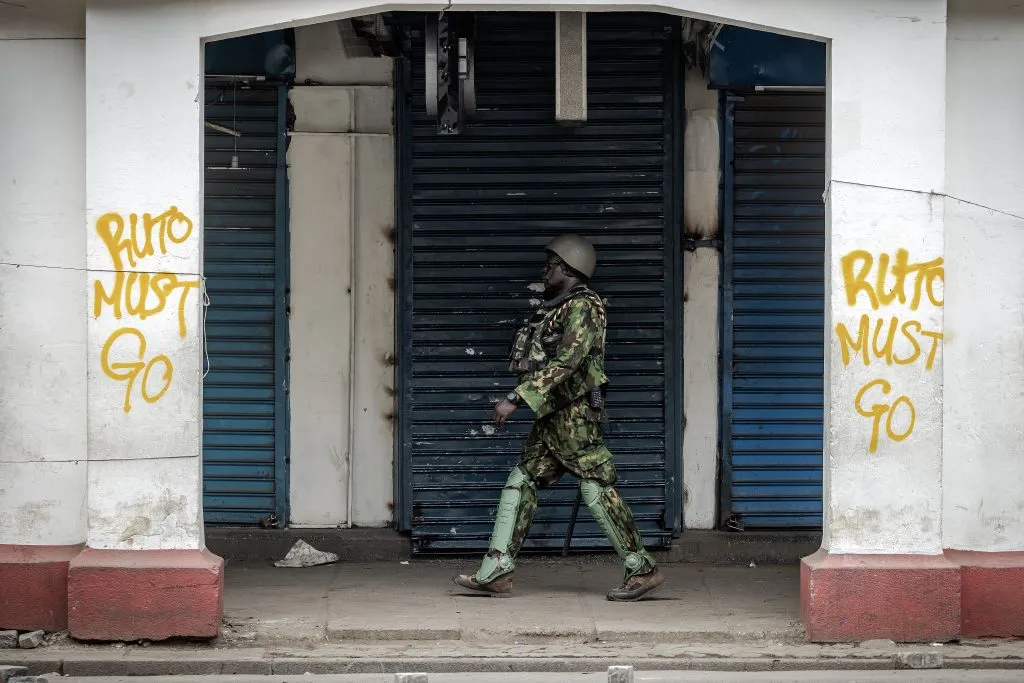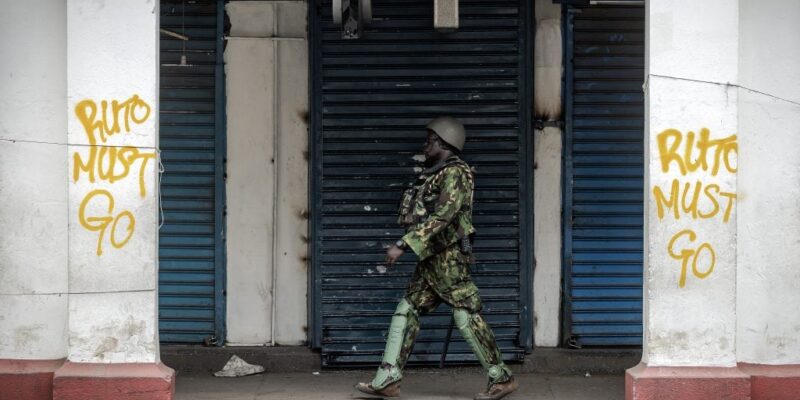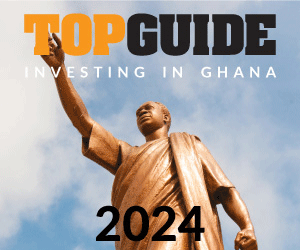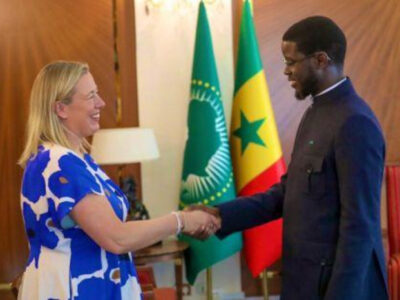
Kenyan President William Ruto may have to give up on his goal of a balanced budget by 2027 after an unprecedented revolt against his tax measures, according to an analyst.
“Hard fiscal reforms may have to be softened,” said Daniel van Dalen, analyst at Signal Risk. “The deficit may not narrow as quickly as they want, but at least you are not risking social unrest, and you are also able to meet debt obligations.”
Kenya’s government is mulling its next steps after furious nationwide protests against Ruto’s Finance Bill 2024 sparked a violent response, leading to the deaths of at least 39 people. according to the Kenya National Commission on Human Rights.
The president is caught between a rock and a hard place, given that he must meet loan obligations, fulfil IMF conditionalities, keep his cabinet happy, and appease furious protestors.
In a statement on 26 June, Ruto already said that he had declined to sign the controversial Finance Bill 2024 which, through aggressive taxation on basic goods including cooking oil and baby nappies, would have brought an estimated annual $2.7bn increase in government revenue.
Spending cuts proposed
Instead, Ruto has ordered the National Treasury to cut spending by the amount that was expected to be raised by the taxation measures.
Last week, Ruto asked the Treasury to review the annual pay increase for state employees that was set for this July. According to the BBC, other spending cuts announced by the President include the dissolution of 47 state corporations with overlapping functions; suspending the purchase of new vehicles for state officials for six months; suspending all non-essential travel for state officials; reducing government advisers by 50%; scrapping the budget for first lady and spouses of deputy president and the prime cabinet secretary; and enforcing the retirement of public servants at the age of 60.
Whether Ruto will order more radical cuts to public programs in the future remains unknown. But Van Dalen believes that major cuts to health and education risk sparking another round of protests.
At the same time, he is sceptical that the proposed cuts will be deep enough to balance the budget. Van Dalen says the Treasury has hinted that it may take on more public borrowing to cover the shortfall.
“The government has also shown its willingness to take on more longer-term debt to meet near-term needs – obviously in expectation that revenue constraints will be sorted in the coming years.”
More borrowing could be a major concern for the IMF, which in a June review called for “a sizeable and upfront fiscal adjustment in FY2024/25” and hailed the government’s “decisive steps towards fiscal consolidation by introducing several measures in the context of the draft 2024/25 Budget and the 2024 Finance Bill. Importantly, the latter centres on measures to broaden the domestic tax base, through rationalisation of various tax expenditures, in line with recommendations in the Medium-Term Revenue Strategy.”
The IMF and Kenya have an agreement for a total financial package worth around $3.6bn.
What do the protestors want?
Meanwhile, protestors say that their grievances with the government are wider-ranging than the Finance Bill.
Muthoni Kibaki, a protestor in Nairobi, told African Business that protestors fear their tax revenues are poorly spent.
“I think the main thing (that caused the protests) was of course the Finance Bill but there were other factors too that drove it, there is a deep concern about where our tax money is going.”
Just over a month ago, Ruto faced criticism about his decision to charter a foreign-owned private jet to the US for an official state visit, with critics questioning why he could not have taken a cheaper flight on the national airline, Kenya Airways.
Others also pointed to his repeated calls for Kenyans to “live within their means,” and questioned whether he is practising what he preaches.
“Protestors want to see spending cuts within the government, not higher taxes,” said Kibaki.
During a dialogue with protestors on social media platform X, Ruto has pledged that the police regulator will look into the deadly police response to the protests and said that he would ensure that a “rogue policeman” alleged to be responsible for opening fire on protestors would be apprehended. Speaking before the President’s remarks, Kibaki rued that there “has been no accountability, no apology for what happened.”
Ruto also proposed the formation of a 100-member national multi-sector forum made up of umbrella organisations which represent young Kenyans to engage in dialogue with the government.
Van Dalen says that it is a shrewd move from Ruto. “If civil society rejects it, then he can at least say, well, I gave you a chance to air your concerns.”











Comments